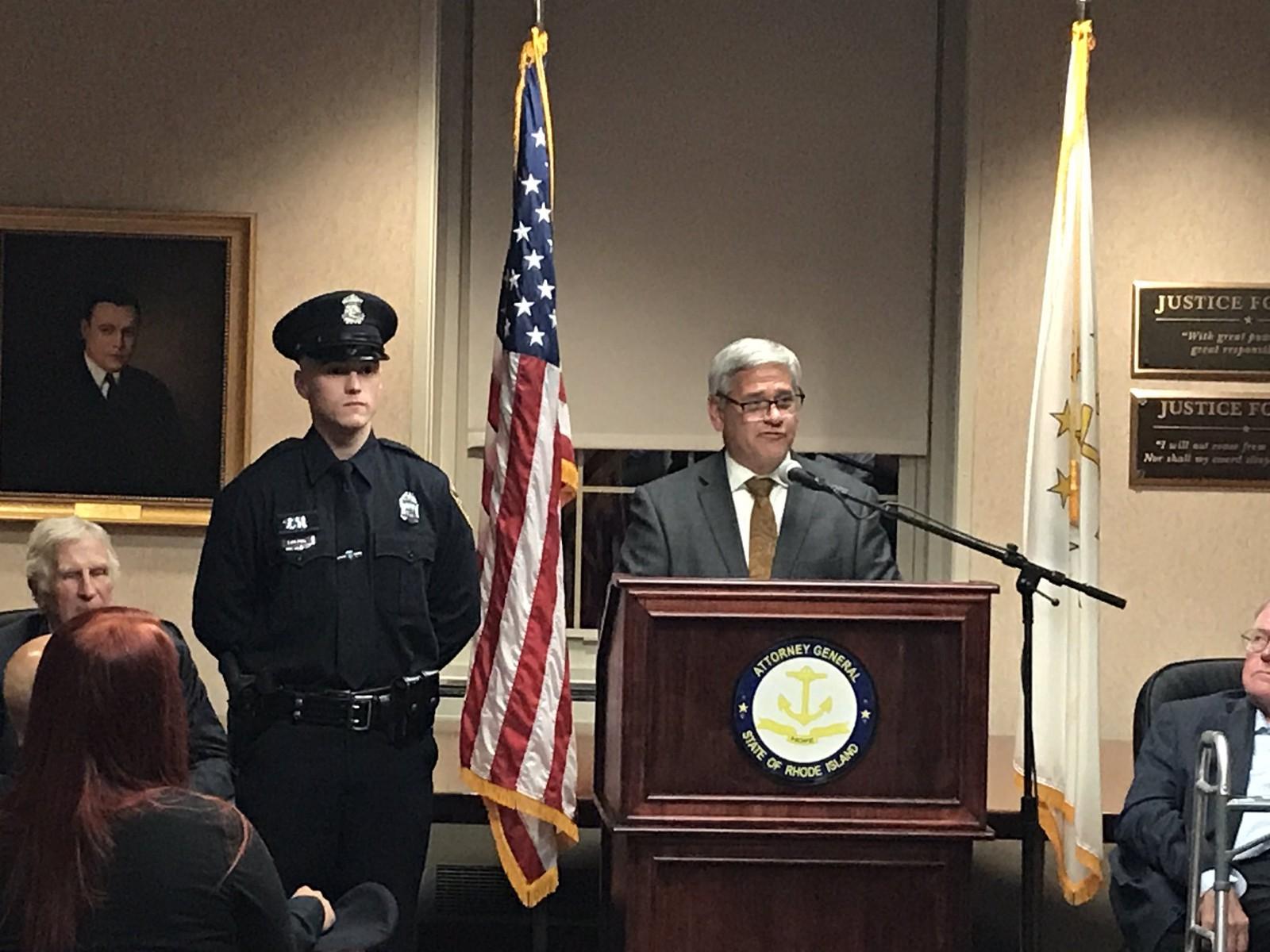Rhode Island Civil Asset Forfeiture Reform Faces an Unusual Foe: A Democratic Attorney General
Law enforcement’s power to seize property suspected of being used in criminal activity regardless of whether the owner has been convicted of a crime has generated mounting public scrutiny of the practice, known as civil asset forfeiture. Both Nebraska and New Mexico have abolished civil asset forfeiture in recent years, and the Department of Justice under the […]

Law enforcement’s power to seize property suspected of being used in criminal activity regardless of whether the owner has been convicted of a crime has generated mounting public scrutiny of the practice, known as civil asset forfeiture. Both Nebraska and New Mexico have abolished civil asset forfeiture in recent years, and the Department of Justice under the Obama administration imposed limits on a federal program that facilitated local seizures, which have since been rolled back by Attorney General Jeff Sessions.
In Rhode Island, two pieces of legislation introduced earlier this year, Senate Bill 2681 and House Bill 7640, would sharply restrict prosecutors’ ability to seize assets, the majority of the proceeds of which are awarded to local police departments. Nearly $15.7 million in property in the state was seized by law enforcement between 2003 and 2013, according to public records obtained by local news station WPRI. In 2013, according to WPRI, 38 percent of seizures in Rhode Island were for $1,000 or less — critically, more than it might cost to hire an attorney to fight to keep the property or cash.
Supporters of the legislation say that civil asset forfeiture violates due process rights — prosecutors can seize property that they claim is related to a crime even, again, if that person is never convicted. The new legislation would limit prosecutors to seizing assets connected to an actual criminal conviction, and also protect people’s homes, vehicles worth less than $10,000 and small amounts of cash. Critically, it would ensure that the state provide a person contesting forfeiture of their property with an attorney if they cannot pay for one themselves. The legislation would also limit participation in the Department of Justice’s Equitable Sharing program, through which the federal government transferred back $23,493,801 in seized asset funds to Rhode Island law enforcement in fiscal year 2017.
Like other criminal justice reform legislation, civil asset forfeiture reform often generates unusual political alliances: The legislation is backed by the Rhode Island ACLU and spearheaded by the Rhode Island Center for Freedom and Prosperity, a conservative organization with a strong libertarian bent that argues that reform would be good for both civil rights and the state’s business climate.
Justin Katz, the center’s research director, points out that the state’s political climate has made enacting such legislation impossible in the past. “Rhode Island has a highly transactional General Assembly,” Katz told The Appeal.“Even fantastic, no-brainer ideas can be tangled up in complications about who is allowed to have a win during the course of a session. In this case, asset forfeiture reform is complicated by the obvious self interest of law enforcement agents to maintain the status quo.”
But the legislation is opposed by law enforcement and by Rhode Island Attorney General Peter F. Kilmartin, who, though a Democrat, has aggressively campaigned against legislation to legalize recreational marijuana. He has also supported a bill to make it easier to charge drug dealers with homicide when drug sales result in a fatal overdose. In an April 26 letter to the chairperson of the state Senate Judiciary Committee, Kilmartin wrote that the proposed civil asset forfeiture legislation “would enable criminal activity and create a sanctuary for criminal behavior.” Furthermore, Kilmartin warned that barring the seizure of residential properties “invites criminal activity, including narcotics activity, into our residential neighborhoods.”
Even though Rhode Island is among the nation’s smallest states, Kilmartin is in effect one of the nation’s most powerful district attorneys because his office prosecutes felonies across a state of one million people.
“Overall, I think eliminating civil asset forfeiture is a huge step forward,” said James Vita, of the National Lawyers Guild of Rhode Island. “The Attorney General’s office should be ashamed that they opposed this bill.”
Kilmartin’s office declined to provide additional comment beyond providing The Appeal with a copy of their letter of opposition.
Yet Vita also argued that legislation is flawed because it would restrict but not bar law enforcement from profiting from seized assets. It would also require the state to “prove by clear and convincing evidence that the petitioner had actual knowledge of the underlying crime giving rise to the forfeiture” — meaning that it is substantially more likely to be true than not, a lower burden of proof than what prosecutors must meet in criminal cases, guilt beyond a reasonable doubt. What’s more, property owners who even had knowledge of a crime but were not involved in it could still have their property seized.
For the strange-bedfellows alliance committed to criminal justice reform, however, the bill is still a sensible and easy step toward a better system. But the Democratic attorney general in a reliably blue state is actively fighting alongside police to sink it. The Senate and House bills are currently before their respective judiciary committees, and getting the legislation signed into law will be an uphill fight. The movement to reform civil asset forfeiture still lacks the power, for now, to ensure that this is an issue that Democratic politicians are wary to cross the cops on.
